Chinese premier says China adheres to opening-up policy no matter how world situation changes
Chinese premier says China adheres to opening-up policy no matter how world situation changes
Chinese premier says China adheres to opening-up policy no matter how world situation changes
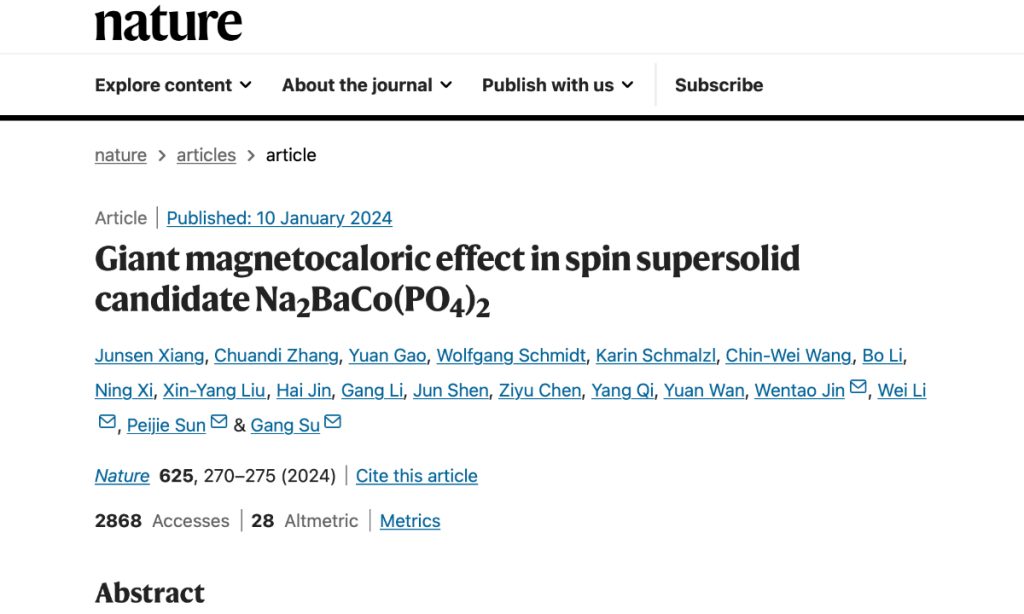
Chinese scientists have recently achieved ultra-low temperature refrigeration without the use of liquid helium, which is expected to have great application prospect in multiple high-tech fields such as deep space exploration, quantum technologies and materials science. The research result has been published in the scientific journal Nature.
Ultra-low temperature refrigeration using liquid helium was invented over a century ago, and has widely been used in national security and strategic high-tech areas such as deep space exploration, quantum technologies, materials science and large-scale research facilities.
However, due to the relative scarcity of helium in nature, it has become an important challenge within the scientific community to achieve ultra-low temperature refrigeration without using helium.
Chinese researchers from several scientific research institutes including the University of Chinese Academy of Sciences, the Institute of Physics and the Institute of Theoretical Physics, Chinese Academy of Sciences, used a triangular-lattice cobaltate material to realize the helium-free cooling to a temperature of 94 millikelvin (minus 273.056 C) with frustrated quantum magnets, designating the effect as “giant magnetocaloric effect of spin supersolid.”
Supersolid is a quantum state exhibited by matter at very low temperatures approaching absolute zero (minus 273.15 C).
Magnetocaloric effect (MCE) is a heating or cooling of a magnetic material when the applied magnetic field changes. MCE can be used for cooling and may offer larger efficiencies than a conventional vapor-cycle refrigeration.
According to the research published in Nature, supersolids are long-sought-after quantum materials with two seemingly contradictory features: a rigid solid structure and superfluidity. The triangular-lattice cobaltate material provides evidence for a quantum spin analogue of supersolidity, with an additional giant magnetocaloric effect — discoveries that pave the way for helium-free cooling to temperatures below 1 kelvin with frustrated quantum magnets.
Su Gang, a professor from the University of Chinese Academy of Sciences, co-author of the research and one of the key individuals who proposed the triangular-lattice cobaltate material to the research team, told the Global Times on Sunday that the discovery of this new state of matter and its new effects represents a significant breakthrough in fundamental researches.
It also provides a new solution to the challenging problem of ultra-low-temperature cooling in China’s cutting-edge research areas such as deep space exploration, quantum technology, and materials science, the Science and Technology Daily reported on Thursday.
Li Wei, a researcher from the Institute of Theoretical Physics, Chinese Academy of Sciences, who proposed the triangular-lattice cobaltate material together with Su, said that the biggest challenge in the follow-up work is the research and development of new devices and refrigeration systems.
According to Li, how to translate the laboratory’s achievements into practical uses and refrigeration systems, so as to provide extremely low-temperature environment and sufficient cooling capacity for deep space exploration or quantum computing, poses certain challenges in both scientific and engineering aspects.
Reviews from Nature praised the research published on Wednesday, calling it a high-quality experiment and expecting that it will spark widespread research interest.
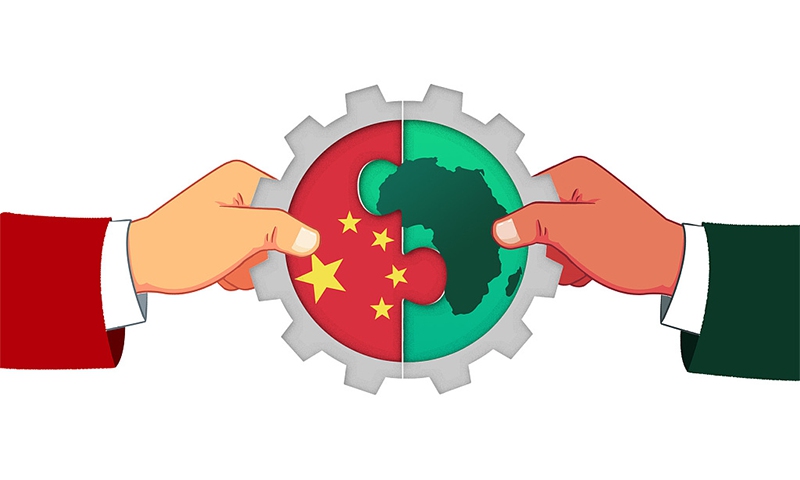
Continuing a tradition that has lasted for 34 years, China's foreign minister has once again chosen Africa as the first foreign visit destination for the new year, and this time the visit will cover two countries in North Africa - Egypt and Tunisia - and two in West Africa - Togo, and Cote d'Ivoire - per the announcement of the Chinese Foreign Ministry spokesperson on Thursday.
Chinese Foreign Minister Wang Yi's first overseas trip in 2024 will take place between January 13 to 18 at the invitation of the four African countries, Mao Ning, the spokesperson, said on Thursday.
After his visit to Africa, Wang will visit Brazil and Jamaica from January 18 to 22, Mao said.
Experts said this year's visit to the four countries highlighted China's heightened attention to the security situation in North Africa against the background of a potential spillover of the Israeli-Palestinian conflict, as well as China's willingness to cooperate with African countries despite its level of development.
Mao noted that Wang's visit has carried on a fine tradition that has been kept for the past 34 years. The trip aims to promote the implementation of the outcomes of the Forum on China-Africa Cooperation (FOCAC) Leaders' Dialogue, and coordinate with African countries on a new session of FOCAC to be held this year.
At last year's FOCAC, Chinese President Xi Jinping proposed three new cooperation initiatives to support Africa's industrialization, agricultural modernization, and talent development, which received an enthusiastic response from his African counterparts, Mao said.
The tradition of the Chinese Foreign Minister's annual first trip to Africa has highlighted China's emphasis on consolidating friendship with Africa. The relationship sets an example of what can truly be called "the establishment of a community with a shared future," Song Wei, a professor from the School of International Relations at Beijing Foreign Studies University, told the Global Times on Thursday.
For the North Africa leg, the visit to Egypt highlights China's welcoming gesture to its officially joining the BRICS family. BRICS inducted five new countries in January and they are Saudi Arabia, the United Arab Emirates, Egypt, Iran, and Ethiopia.
Choosing to visit North Africa also reflects China's heightened concern over the security situation in the Middle East and the Red Sea, Song said.
As tensions in the region continue to grow, it has threatened the safe passage of an important lifeline for the international economy, and risks a conflict spillover. "The current situation is extremely dangerous from both a political and economic perspective," Song said. "At such a point, Wang's arrival brings the hope of coordinating relations among regional powers, trying to resolve conflicts and restore stability to the world economy and politics."
For West Africa, there were several instances of turmoil and conflicts last year, including military coups. And compared to other regions in Africa, West Africa faces more severe development challenges, so Wang's visit to this region highlighted China's emphasis on security and stability in the continent, experts said.
Cote d'Ivoire has relatively higher development levels in the continent, while Togo ranks as among one of the poorest countries in Africa, reflecting China's overall focus on Africa's development, Song noted.
Wang Youming, director of the Institute of Developing Countries at the China Institute of International Studies in Beijing, said China-Latin America relations have steadily progressed in the past few years, with a significant increase in trade volume, thanks to the structural advantage of a mutually beneficial economic complementarity.
Despite recent political changes in Latin America, with at least five general elections coming up this year including in Mexico and Uruguay, there will be little impact on China-Latin America relations whichever ruling party wins, whether left-wing or right-wing, Wang Youming told the Global Times on Thursday. This is because as an important trading partner, China plays a crucial role in helping them overcome economic challenges.
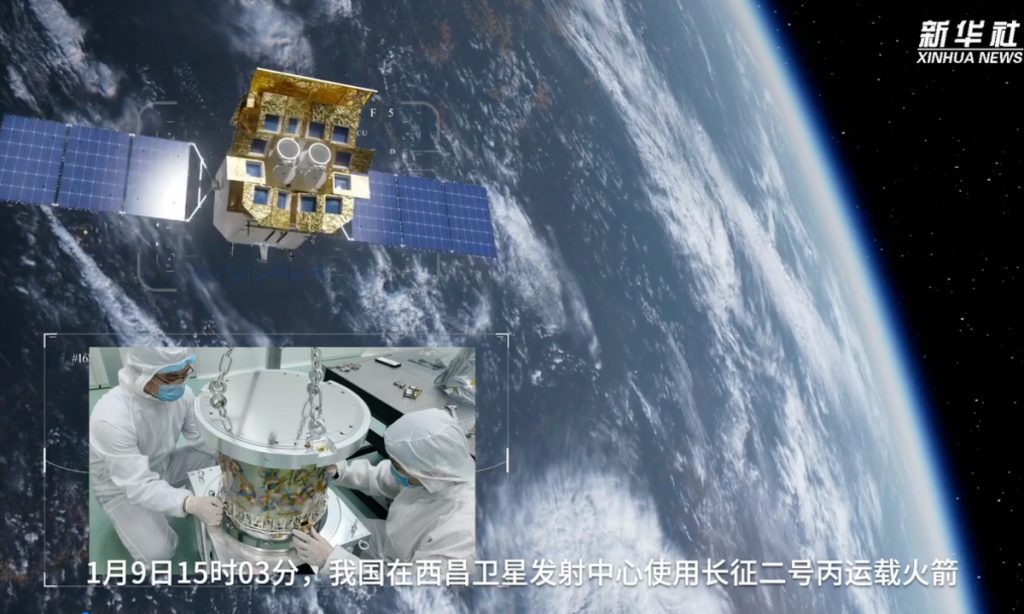
China successfully sent on Tuesday a new-generation X-ray observatory satellite, the Einstein Probe (EP), into orbit to monitor flashes in the night sky and observe mysterious transient phenomena in the universe. The satellite will help reveal more about this violent and little-known side of the cosmos and help advance people’s understanding of tumultuous cosmic events.
The satellite lifted off atop a Long March-2C rocket from Xichang Satellite Launch Centre in Southwest China’s Sichuan Province at 3:03 pm, China’s National Space Science Center (NSSC) of Chinese Academy of Science announced on its website.
According to the NSSC, the EP is a scientific satellite among the Strategic Priority Program on Space Science (II), a series scientific satellites program implemented by China since 2011 following the successful launches of scientific satellites such as Wukong and Mozi satellites.
The Einstein Probe Space Science Satellite serves as a cosmic explosion catcher, capable of precisely capturing more distant and fainter transient sources and eruptive celestial bodies. It explores X-ray signals from sources of gravitational waves and holds important scientific significance in studying the formation, evolution and mergers of dense celestial objects such as stars, black holes and neutron stars.
The EP satellite employs the time-domain astronomy in the soft X-ray band to conduct high-sensitivity real-time dynamic sky surveys, in a bid to systematically discover high-energy transient and variable celestial objects, monitor the activity of already known celestial bodies and explore their natural and physical processes.
With the new X-ray detection technology inspired by the functioning of a lobster eye, the EP weighs1.45 tons and it’s as large as a full-size SUV. It is shaped like a lotus in full bloom and features 12 petals and two stamens.
The “petals” are actually 12 modules consisting of wide-field X-ray telescopes, while the two “stamens” consist of two modules of follow-up X-ray telescopes.
With these instruments, the EP can conduct wild-field surveys while accurately capturing distant and faint high-energy transient sources in the universe, as well as capturing transient unknown phenomena. It issues alerts to guide ground-based and other astronomical facilities for subsequent observations.
The satellite is designed to last 5 years.
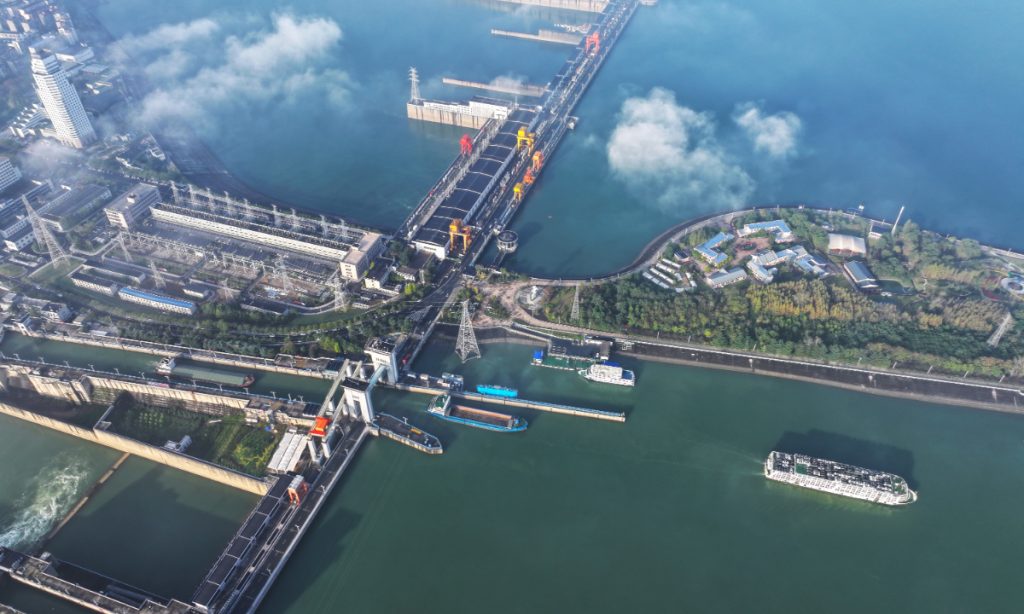
Chinese Premier Li Qiang encouraged Chinese research fellows to achieve greater breakthroughs in technology and research for core technologies, and contribute more to China's technological self-reliance and self-improvement, during his inspection to Central China’s Hubei Province from Tuesday to Wednesday, China Media Group reported.
Li made the remarks when visiting the State Key Laboratory of Information Engineering in Surveying, Mapping and Remote Sensing at Wuhan University. Li urged the research fellows to vigorously promote multi-scenario applications, and gather and integrate more innovative resources.
While in Wuhan, Li visited companies including Yangtze Memory Technologies Co and HGTECH to observe production lines while learning about the development of flash memory chip and laser industries.
Li stressed the need for enterprises to further play the role of being the main drivers for scientific and technological innovation, improve the mechanism of collaborative innovation of industries, universities and research institutes, and implement more precise support policies to transform scientific research achievements into real productivity.
Li also visited the Gezhouba Dam in Yichang. He urged enterprises to continue promoting scientific and technological innovation while prioritizing ecological and green development when visiting Hubei Xingfa Chemicals Group Co.
China is bolstering and advancing scientific and innovative development.
According to a readout of the annual Central Economic Work Conference following its conclusion in December, "sci-tech innovation should lead the development of a modern industrial system," the Xinhua News Agency reported.
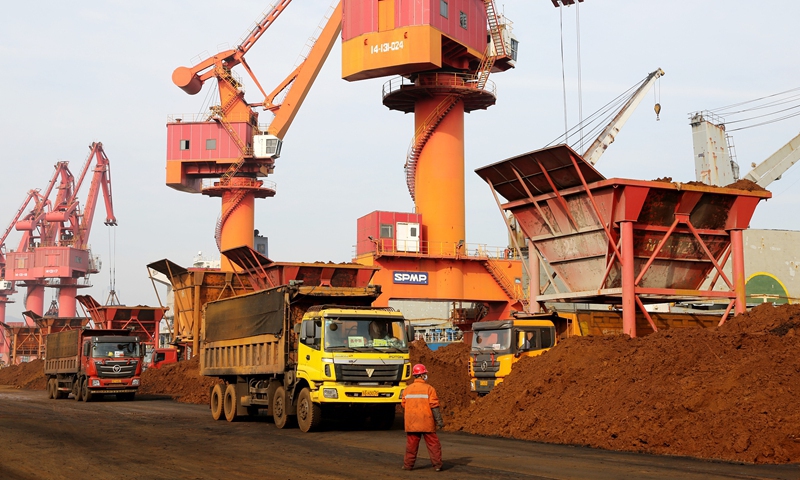
China Harbour Engineering Co (CHEC), a subsidiary of China Communications Construction Co, recently won the bid for the dredging project of the entrance channel and port basins for the Simandou iron ore project, the world's largest undeveloped iron ore deposit, in Guinea.
The dredging project represents a significant operational achievement for CHEC in the Guinea market, as stated in its official WeChat account on Friday.
This project also signifies another step forward in the development of the high-grade iron ore project, involving joint participation between Chinese enterprises and their international partners.
The expansion and breakthrough in the Simandou project further strengthen CHEC's collaboration with major mining clients in Guinea, solidifying its competitive advantage in the hydraulic engineering market and providing robust support for ongoing development in the Guinea national market, according to CHEC.
The dredging project has a duration of 21 months and involves dredging the shared channels and port basins of the Winning Consortium Simandou (WCS), a consortium backed by Singaporean and Chinese companies, and the Anglo-Australian mining group Rio Tinto.
The channel spans 22.60 kilometers, with a bottom width of 250 meters and an approximate dredging volume of 21.57 million cubic meters, according to CHEC.
The successful bidding of the dredging project occurred just a few days after the reported successful blasting of the No. 5 road in the Simandou mining area, marking another important progress in the mining project.
The successful blasting of the mining project for the first time establishes a solid foundation for subsequent production operations and a series of mine development works.
Infrastructure development for the Simandou mining project is underway after the project officially resumed substantive development in March 2023, following a one-year suspension.
The iron ore project is being progressed in partnership with CIOH, a Chinalco-led consortium, WCS, Baowu, and the Guinean government.
Rio Tinto, one of the investors in Simandou, announced in December 2023 a detailed financial investment plan, revealing that the southern Simandou mining area is expected to commence production in 2025 and increase annual production capacity to 60 million tons within the next 30 months.
The potential total reserves of iron ore in this mine are approximately 10 billion tons, ranking it third globally after Australia and Brazil. Upon production, the annual output is projected to range from 100 million to 150 million tons, contributing to 5 to 7 percent of the world's annual production, according to a Caixin report.
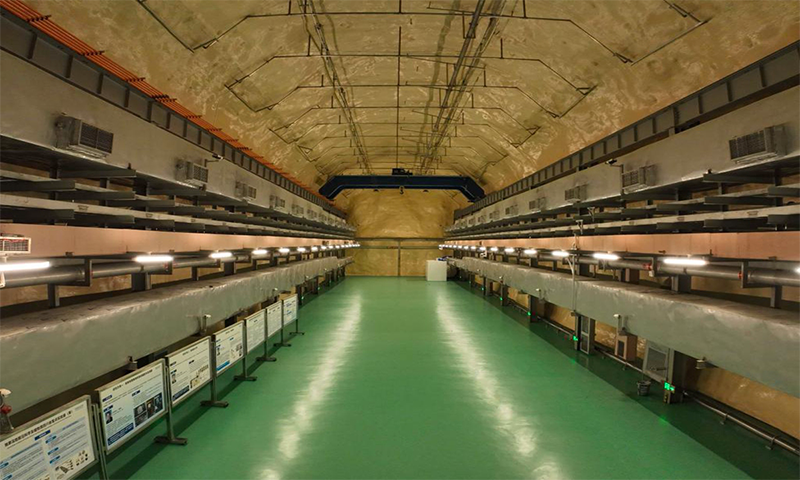
A 2,400-meter-deep physics laboratory in Southwest China's Sichuan Province was put into scientific operation on Thursday, making it the deepest and largest underground laboratory globally, Xinhua News Agency reported.
The deep underground and ultra-low radiation background facility designed for frontier physics experiments is located beneath Jinping Mountain in Sichuan's Liangshan Yi Autonomous Prefecture. The facility, with a total room capacity of 330,000 cubic meters, is the second phase of China Jinping Underground Laboratory.
The first grouping of 10 experimental project teams from Tsinghua University, Shanghai Jiao Tong University and Beijing Normal University among others, have settled in and started scientific experiments within the facility.
Li Hongbi, chief engineer of the engineering and technology department said that the facility construction was started in December 2020, and the wind, water and power system of the whole laboratory has been built and put into use, meeting the condition for the experiment groups to settle in.
Scientists believe that the laboratory offers an environment free from interference, which allows them to pursue the invisible substance known as dark matter. They said that the significant depth of the laboratory helps block most cosmic rays that interfere with observation, Xinhua reported.
The facility will become a world-class interdisciplinary deep underground scientific research center integrating multiple disciplines including particle physics, nuclear astrophysics and life sciences, to facilitate the development of China's research in relevant frontier fields, according to the report.
The China Jinping Underground Laboratory was inaugurated in 2010, which is an underground research facility with the deepest rock overburden and largest space by volume in the world. It is located in the Jinping tunnel in Sichuan Province, according to the lab.
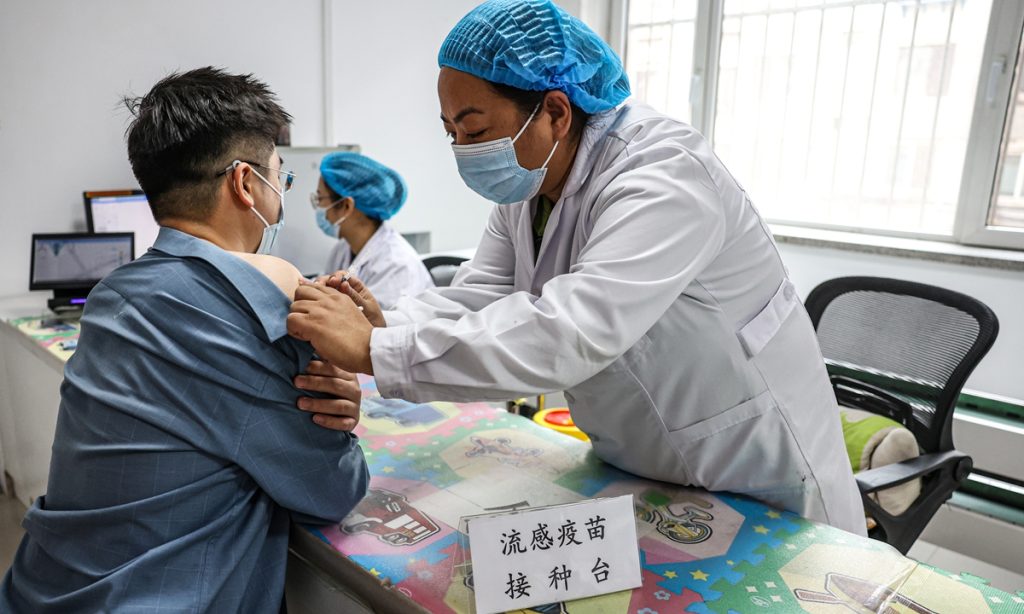
For major public health emergencies that result in more than five deaths or critical cases, provincial health authorities must report to China's top health authority within two hours upon receiving the report, according to new medical emergency regulations released by the National Health Commission (NHC) on Monday.
The NHC released the trial regulation to clarify the mechanisms and processes for emergency medical responses to sudden incidents, and to standardize and efficiently carry out emergency medical rescues in order to avoid and reduce casualties and ensure people's safety and health.
When the casualty situation is not clear, the situation should be reported first, with specific casualties submitted later. Health administrative authorities below the provincial level can directly report to the NHC, while copying the higher-level health authorities. The NHC should promptly report to the State Council upon receiving the report, according to the regulation.
The drafting of the trial regulation was based on relevant emergency, medical laws, regulations and contingency plans, including the Emergency Response Law of the People's Republic of China, Basic Healthcare and Health Promotion Law and the national emergency response plan for public health emergencies, said the NHC.
The trial medical emergency regulation was released in a timely manner, providing clear guidance and assistance to medical institutions in dealing with sudden health emergencies, Lu Hongzhou, head of the Third People's Hospital of Shenzhen, told the Global Times on Tuesday.
For example, based on the Law on Prevention and Treatment of Infectious Diseases and other relevant laws and regulations, infectious disease patients should be promptly transferred to designated medical institutions for treatment, Lu said.
The trial regulation standardizes the system of medical emergency information discovery and reporting, as well as the entire process of medical emergency disposal. It clarifies the work responsibilities of relevant departments and institutions.
The health authorities will establish a system for retroactive investigation and accountability in order to strengthen inspection and guidance and improve the timeliness and accuracy of reporting. For those units that report late, omit, lie, or conceal information, they shall be resolutely held accountable in line with relevant regulations.
It also clarifies the standards for on-site medical emergency disposal, injury classification, treatment of the injured and other facets. It stipulates the management of medical emergency teams and base construction, the establishment of a medical emergency expert database, the formulation of medical emergency plans, the reserve of medical supplies, training and drills and other areas as well.
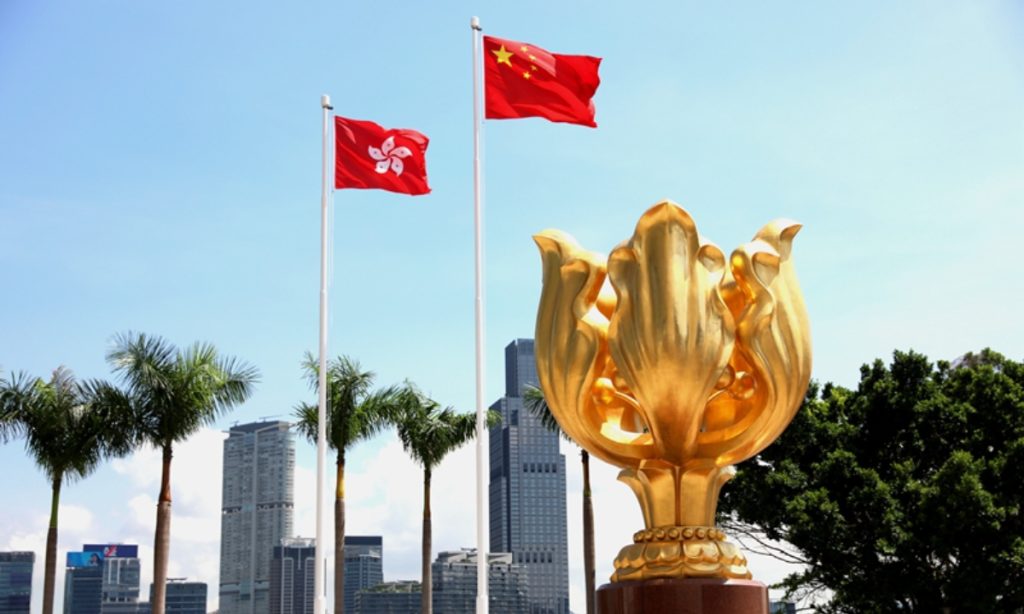
The US and the UK's support for anti-China rioters exposed their ill intention to destabilize the Hong Kong Special Administrative Region (HKSAR), Chinese Foreign Ministry spokesperson Mao Ning said at Friday's regular press briefing, in response to the latest remarks by US and UK politicians regarding the issuing of arrest warrants for five fugitives that have fled the HKSAR to overseas.
China strongly deplores and firmly opposes certain countries' flagrant slandering against the national security law for Hong Kong and interference in the rule of law in the HKSAR, and the issuing of arrest warrants for the five fugitives is in line with international law and common practice, said Mao.
The National Security Department (NSD) of the Hong Kong Police Force said on Thursday that the police have put on the wanted list five individuals who have fled overseas and are suspected of having committed offences under the national security law for Hong Kong.
The five are Cheng Man-kit, Hui Wing-ting, Joey Siu, Fok Ka-chi and Choi Ming-da, according to the HKSAR.
The HKSAR government also on Friday strongly opposed and condemned certain countries' remarks on the issuing of arrest warrants for the five individuals.
The police issued arrest warrants of these five individuals according to the law, which is necessary and legitimate, said Mao. The national security laws of other countries including the US and the UK also have extraterritorial effect. These five individuals, under the pretext of "democracy" and "human rights," have engaged in activities that undermine China's national security, Mao said.
The Commissioner's Office of Chinese Foreign Ministry in HKSAR also expressed strong dissatisfaction and firm opposition on Friday. The spokesperson from the Commissioner's Office said that the extraterritorial application of the national security law for Hong Kong is fully in line with the principles of international law and common practice, and is a necessary and justified measure to ensure Hong Kong's long-term stability and order.
Meanwhile, the 2023 Implementation Rules for Amending the Implementation Rules for Article 43 of the Law of the People's Republic of China on Safeguarding National Security in the Hong Kong Special Administrative Region took effect on Friday.
"The amendments are technical in nature and the scope of the proposed amendments is extremely narrow: it only aims at making clear provisions in respect of the validity period of freezing notice, without changing the basis or principle for issuing such notice," said a spokesperson from HKSAR on Friday.
The amendments can make sure that the freeze notice of property related to offenses under the national security law for Hong Kong remains valid until the legal proceedings conclude, according to the HKSAR.
Lawmaker Elizabeth Quat Pui-fan supports the revision of the implementation rules. The lawmaker told the Global Times on Friday that it can "effectively combat serious crimes that endanger national security."
Anti-China figures are still using various means to deny and evade their crimes that endanger national security. The anti-China forces in the US and the West are eager to continue stirring up trouble and messing up Hong Kong, the lawmaker emphasized.
Authorities are launching a direct strike against anti-China elements and those who disrupt Hong Kong, by pursuing the criminal acts of Jimmy Lai Chee-ying and his peers in accordance with the law and freezing their assets. They have brought this upon themselves and HKSAR is obligated to handle it in accordance with the law, Quat said.
It is necessary to uphold the rule of law in governing HKSAR, using legal means to maintain stability and uphold social justice, the lawmaker said.
Mao, the foreign ministry spokesperson, reiterated that Hong Kong affairs are purely China's internal affairs that brook no interference from any external forces. China maintains firm resolve in safeguarding the nation's sovereignty, security and development interests. Relevant countries should respect China's sovereignty and the rule of law in HKSAR and stop interfering in China's internal affairs, she said.
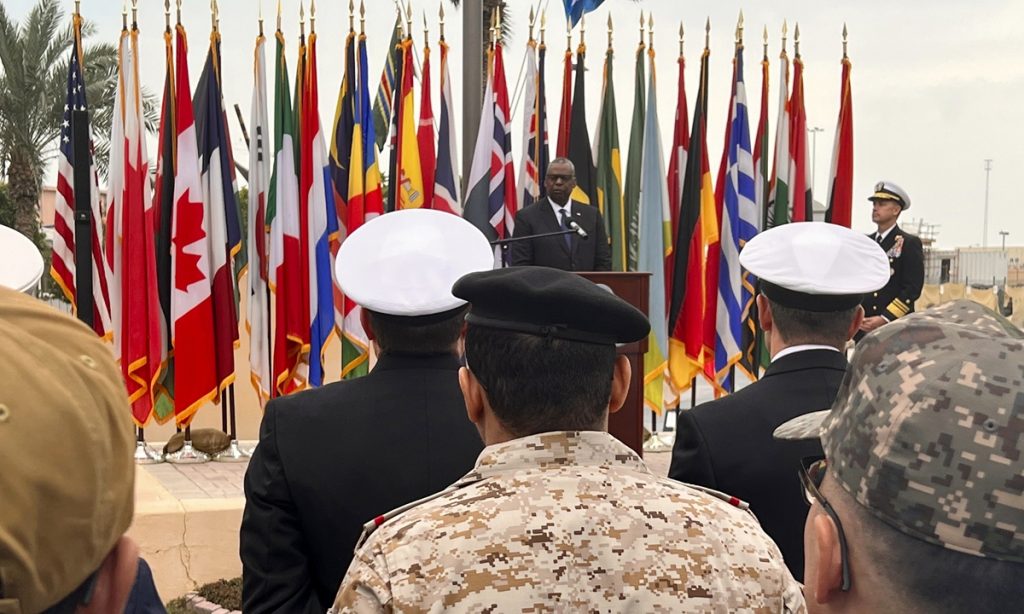
The US-led joint patrol in the Red Sea following Houthi militia attacks against ships heading toward Israel shows that the Palestinian-Israeli conflict in Gaza is not only affecting the whole region, but also the international community. Chinese analysts pointed out that the root cause of the trade route problem is the ongoing conflict in Gaza, and only a sustainable cease-fire and allowing humanitarian aid to enter Gaza via land and sea routes can solve the problem in the Red Sea.
China will pay close attention to the situation, and Chinese naval vessels that conduct UN authorized anti-piracy missions in the region will keep performing their duty, analysts said, adding that China will stick to the priority of realizing a cease-fire and clear the way for humanitarian aid for the people in Gaza, rather than joining the US to conduct any military operations without UN authorization to escalate the crisis in Gaza.
The US and a host of other nations are creating a new force to protect ships transiting the Red Sea that have come under attack by drones and ballistic missiles fired from Houthi-controlled areas of Yemen, Defense Secretary Lloyd Austin announced Tuesday in Bahrain, the AP reported.
The UK, Bahrain, Canada, France, Italy, Netherlands, Norway, Seychelles and Spain have joined, Austin said. Some of those countries will conduct joint patrols while others will provide intelligence support in the southern Red Sea and the Gulf of Aden.
The Houthi militia attacked two commercial ships in the Red Sea with naval drones on Monday. The recent attacks have caused concerns about the impact on the passage of oil, grain and other goods on what is an important global trade route, and have pushed up the cost of insuring and shipping goods through the Red Sea, Reuters reported.
The Shanghai-based news website The Paper reported on Tuesday that following other international shipping companies including Denmark's Maersk and France's CMA, Chinese shipping giants like COSCO and Orient Overseas Container Line (OOCL) also suspended transport through the Red Sea.
Ma Xiaolin, dean of the Institute for Studies on the Mediterranean Rim at Zhejiang International Studies University, told the Global Times on Tuesday that the trade route via the Red Sea is truly important for China as it connects Europe, Asia and Africa, so China will pay close attention to the situation.
"However, although China has naval vessels in the region, their mission is about anti-piracy, rather than intervening in regional issues and other countries' internal affairs. Only a solution to the ongoing crisis in Gaza can effectively solve the problem in the Red Sea," Ma said.
On December 9, Al Jazeera reported that the armed group in Yemen claimed that "it will target all ships heading to Israel, regardless of their nationality, and warned all international shipping companies against dealing with Israeli ports."
"If Gaza does not receive the food and medicines it needs, all ships in the Red Sea bound for Israeli ports, regardless of their nationality, will become a target for our armed forces," the group's spokesperson said in a statement on Saturday, according to Al Jazeera.
Song Zhongping, a Chinese military expert and TV commentator, told the Global Times on Tuesday that the "Houthis are specifically targeting Israel, so it's unlikely it will attack Chinese vessels. China doesn't need to be too worried about the situation and the Chinese warships in the region will stick to their plan."
"China will keep making efforts to realize a sustainable cease-fire and clear the way for humanitarian aid to get into the Gaza Strip. This is the real priority that needs to be done," Wang Jin, an associate professor at the Institute of Middle Eastern Studies at Northwest University, told the Global Times on Tuesday.
If Washington and its allies want to solve the Red Sea problem, they should play a responsible role in the UN Security Council to pass a cease-fire resolution and to put concrete efforts into improving the humanitarian situation in Gaza, which would be more effective than sending warships to conduct joint patrols, experts said.
The humanitarian situation in Gaza remains severe. According to Reuters on Tuesday, Israeli missiles and air strikes on the Rafah area in southern Gaza struck three houses killing at least 20 Palestinians, Gaza health officials said on Tuesday. Tens of thousands of displaced Palestinians have crammed into Rafah on Gaza's border with Egypt to escape Israeli bombardments.
The lack of unity in the UN that is mainly caused by the US is another key reason why the situation is far from easing. The UN Security Council delayed until Tuesday morning a vote on an Arab-sponsored resolution calling for a halt to hostilities in Gaza to allow for urgently needed aid deliveries to a massive number of civilians as members intensified negotiations to try to avoid another veto by the US, the AP reported.
Wang Wenbin, a spokesperson for the Chinese Foreign Ministry, said at a routine press conference on Tuesday that "the UN General Assembly has adopted two resolutions with an overwhelming majority. We hope the US will listen to the voice of the international community, stop single-handedly blocking Security Council resolutions, and play its due role to promote an immediate cease-fire and prevent an even larger humanitarian catastrophe."